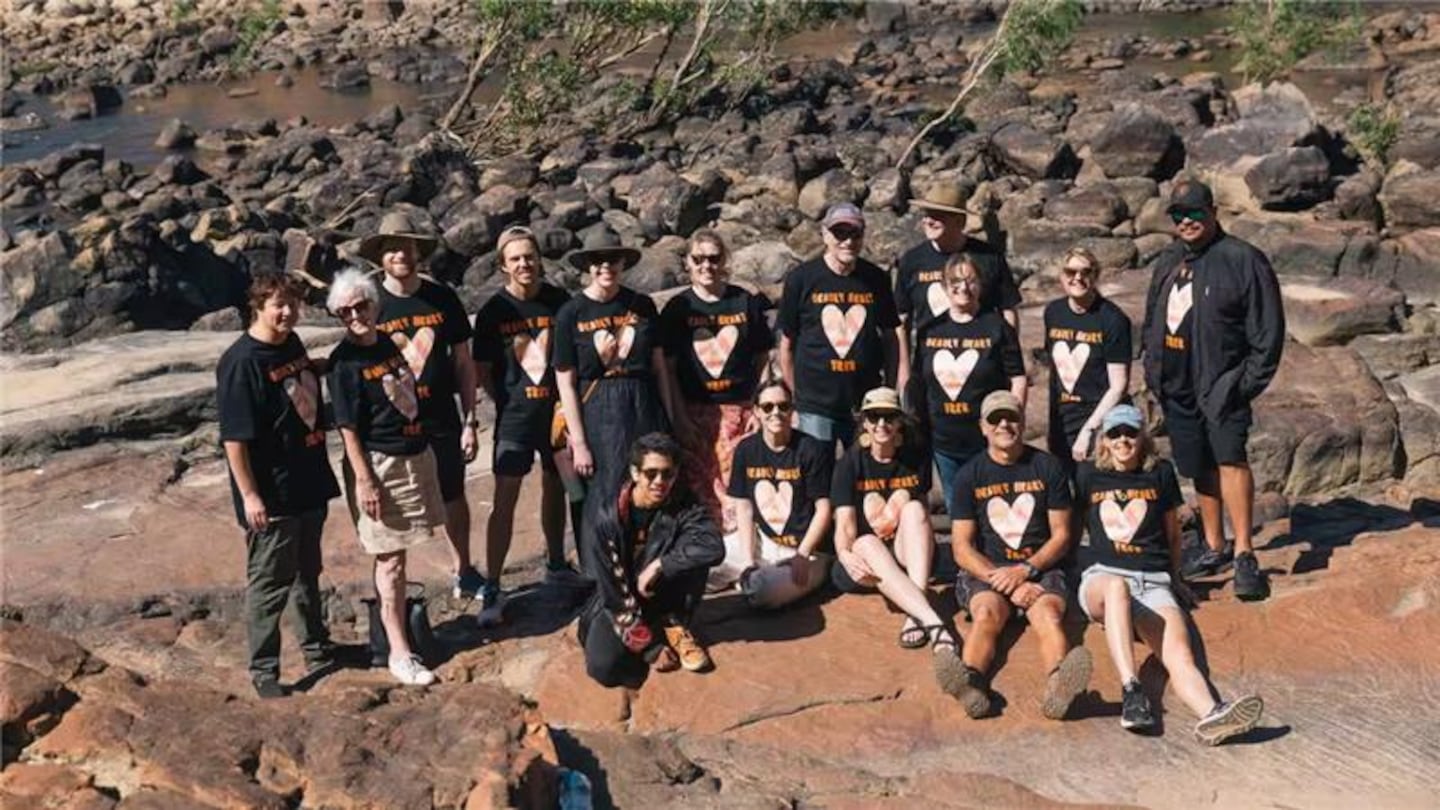This article was first published by NITV
Among the ancient sandstone gorges carved out by the Katherine River, an unlikely group of Aboriginal leaders, cardiologists, and local medicos have teamed up for a trek to save lives.
Over two weeks the team will visit nine remote communities throughout the Big Rivers Region of the Northern Territory.
Their mission: to stop the ongoing scourge of Rheumatic Heart Disease and its disproportionate impacts on First Nations communities.
“The only way we close the gap is by walking beside, not in front,” Aunty Vicki Wade said.
The senior Noongar woman is the co-chair of Deadly Heart Trek, the flagship initiative of Deadly Hearts Ltd. She’s also the cultural leader for the team on the ground.
“A big part of this trek is about education and empowering mob where they live — giving them tools to manage this disease and build confidence, strengthen community leadership, and drive long-term change from within,” Wade said.
Training the next generation of Aboriginal healthcare workers
As a junior doctor working in remote communities, Dr Bo Remenyi was tasked with filling out death certificates for children dying of the preventable disease.
She went on to become one of Australia’s first female paediatric cardiologists, and in 2021 founded the Deadly Heart Trek with her colleague Dr Gavin Wheaton.

Dr Remenyi said Aboriginal health workers are central to the work and its long-term impact.
“These are often the only staff who stay in community year after year,” Dr Remenyi said.
“They are the fabric of remote health care.
“By bringing training to them, where they live and work, we are not just sharing knowledge, we are reinforcing their critical role and growing the next generation of leaders in Aboriginal health.”
What is RDH?
Aboriginal and Torres Strait Islander people are 64 times more likely to have RHD than non-Indigenous Australians.
Most of those affected are young, and two thirds are women.
RHD begins with a common strep A infection — a sore throat or skin sore.
If left untreated it can lead to lifelong complications, invasive treatments, and premature death.
While it is almost eradicated in the general Australian population, Aboriginal and Torres Strait Islander people experience some of the highest RHD rates in the world.
What does the Deadly Heart Trek do?
The Trek delivers education, early diagnosis and treatment through a culturally safe, community-led model.
Activities include echocardiographic (echo) heart checks to detect RHD in children, skin checks to identify sores and scabies linked to the disease, and tailored education for schools, health workers, and the broader community.

Georgina Byron, a co-chair of Deadly Hearts Ltd and the CEO of Snow Foundation, said the trek has seen great success since it’s inception.
“Over the four years, we’ve visited 37 communities across the NT and QLD, screened more than 3,900 children, diagnosed and treated 107 new cases of RHD, and delivered education to over 8,000 people,” Byron said.
Community feedback indicates 100 per cent of communities welcomed the Trek’s return and 100 per cent would recommend to others.
“We’re looking forward to returning to Katherine and the Big Rivers region — walking alongside communities who are empowered to drive change for their own futures,” Byron said.
By Emma Kellaway of NITV



